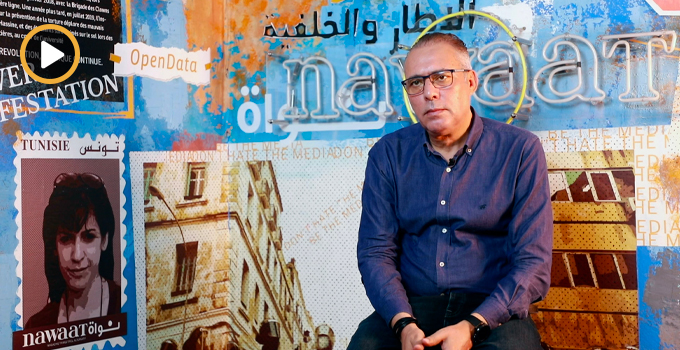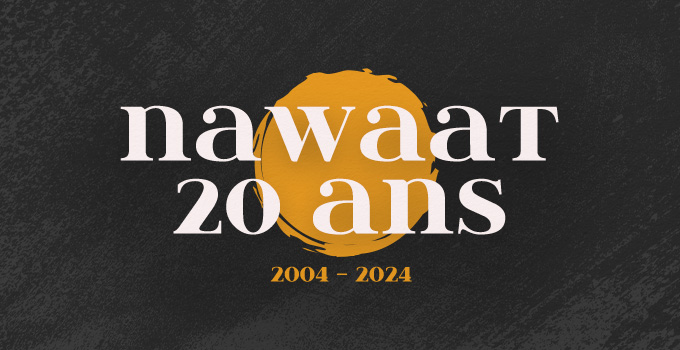
Tunisia : «Regional and International Prestige»
Buzzwords such as “cooperation” and “partnerships” permeated both national and international discourse on security and unemployment issues during the past week in Tunisian news. In its new role as the diamond-in-the-rough of North Africa, Tunisia is redefining its niche in the region and world at large, strengthening and reforming economic and political alliances with neighborhing and cross-continental allies. Just as Bouazizi’s self-immolation is perceived as having ignited the so-called Arab Spring, it is a commonly expressed hope that Tunisia’s democratic transition will signal the opening of the Arab world to the Western precepts of democracy. As noted in La Presse de Tunisie this week, «Tunisia is considered a gateway into Africa and the Arab countries owing to the multitude of cooperation agreements signed in the context of bilateral and multilateral cooperation.”
Tunisia’s transitional status— showing marked structural reforms and promising signs of «progress» while of course still in dire need of economic stabilization measures–renders it an overwhelmingly appealing candidate for development, investment, and foreign aid programs. If Tunisia were a graphic novel, it would be a bestseller in Europe and the US; its timeline of events since 2010—dictatorship to revolution to interim government to a new constitution to planning for democratic elections and coping with political violence and terrorism—has earned it prestige and the attention of «developed» nations throughout the Western world.

Tunisia and the European Union: A Privileged Partnership
A press release from Wednesday, February 19 detailing «Concusions from the Council on Tunisia» summarizes the plenery meeting in Brussels, «Following positive developments in Tunisia and in the spirit and principles of the European Neighborhood Policy, the European Union commits to reinforcing its privileged partnership with Tunisia and its support for political and socio-economic reforms in service to the democratic aspirations of Tunisians.” According to Babnet, the meeting focused on supporting PME (the French acronym for small- and medium-size businesses) through «euro-mediterannean industrial cooperation» with the ultimate goal of stimulating employment on both sides of the Mediteranean. In its press release, the European Union Council of Foreign Affairs reavows its support for Tunisia throughout the democratic transition and specifically in planning for upcoming elections, inviting Tunisia to engage in consultation with its social partnerships to confront socio-economic and security challenges, and reinforcing its promise to provide technical and financial assistance.
A two-part, comprehensive overview of the plan of action on Nawaat reviews the extensive “political cooperation” which is specified on several fronts, namely pertaining to:
– parliament, through intensification of exchanges between different political parties and parlementary groups on both sides of the Mediterranean
– security issues (including justice, border patrol, and the fight against organized crime), and through Tunisia’s participation in the Organization for Security and Co-operation in Europe (OSCE) as well as compliance with UN resolution 1540/2004 for the regulation and criminalization of arms proliferation
– democracy and rule of law, to ensure the presence of institutions including parliament, political parties, an independent commission to organize elections, and civil society; through reform and modernization of the justice system and penal code
– gender equality, human rights and civil liberties, or conformity with the International Covenant for Civil and Political Rights as well as the Rome Statute
– the Council of Europe and other international organizations including the Maghreb Arab Union, Union for the Mediterranean, the Sahara and Sahel Observatory; as expressed in the Nawaat overview, «the creation of a triangular dialogue between Tunisians, Europeans, and Africans…with Tunisia playing the rôle of «promoter» of the policies of the European Union.»
The Nawaat article concludes with a reflective question:
Certainly the construction of European democracy is no longer the question; certainly in this domain a technical and financial cooperation can fortify a nascent democracy, but what about national sovereignty? Are we not capable of constructing our own democratic model?
Nawaat

Tunisia and the United States – Not Just Partners, but Friends
Notably, US discourse—both in its content and vocabulary—has proven to be quite similar to the European Union’s discussions concerning Tunisia. On Tuesday, February 18, US Secretary of State John Kerry visited the Carthage Palace in Tunis to meet with President Moncef Marzouki and Prime Minister Mehdi Jomâa to promote «tuniso-american cooperation» in order to «raise them to the level of a real partnership between the two friendly countries» especially in terms of economic exchange and the fight against terrorism. Having complimented Tunisians on their committment to achieving the successes of democratic transition, he remarked that this spirit could only serve to «strengthen Tunisia’s prestige in regional and international contexts.» According to La Presse de Tunisie, Kerry’s praise was an affirmation of renewed US support for Tunisia: «The secretary of state confirmed that his country would be alongside Tunisia for the organization of the upcoming elections.» Kerry deliberated that US financial aid to Tunisia would include $24 million towards security cooperation, $100 million towards debt relief, and $20 million towards new technologies. Lastly Kerry mentioned a «strategic dialogue» on the subject of education, alleging that Congress has approved increased funding for the Thomas Jefferson program through which Tunisian students would be sponsored to study for one year in the United States.
Tunisia and Algeria – El Sebsi Calls for «intensifying» Security Cooperation Efforts
While privileged partnerships and friendships blossom across continents, demands have been made for the fortification of regional alliances. In a press conference on Wednesday, February 19, Beji Caid el Sebsi of the political party Nidaa Tunis emphasized the gravity of the most recent terrorist attack on February 16 in Tunisia’s northwest city Jendouba. According to Global Net, El Sebsi appealed to Jomâa’s administration ««to instensify» cooperation with Algeria in the fight against terrorism in light of Tunisia’s «incapacity» to confront this phenomenon alone, adding that Algeria had succeeded in defeating this scourge.» A Tunisie Focus article reported that el Sebsi’s comments echoed the prime minister’s recent statements calling for a national and regional approach to security based on the exchange of experience amongst neighboring countries.
“Another Marzoukian Miracle”
Aside from the buzzwords and euphemisms of international relations discourse, quite another current runs through Tunisia’s media landscape, diffusing news and information through sarcasm, wit, and humor. Interim president Moncef Marzouki has long been a source of comedic inspiration for journalists, cartoonists, and radio personalities alike. Two events in the past week have provoked new jokes and caricatures about Marzouki: new developments in the long-standing and sensitive Jabeur Mejri case, and a discussion on Wednesday, February 19 about the present state of and projections for Tunisia’s hydraulic system.
 The Mejri affair certainly evokes mixed emotions among Tunisians, but the general sentiment in the media this week is one of disappointment as Mejri shall remain in prison even after Marzouki decided, having consulted the sheiks of the Zeituna mosques, to pardon Mejri who was originally sentenced to seven and a half years in prison for posting caricatures of the Prophet on Facebook. A Nawaat article comments, «Another schizophrenic contradiction added to the discourse of the state and its constitutions…Moncef Marzouki passes two messages to Tunisians…the first concerns civil society and says that its great mobilization for Jabeur didn’t serve to do anything…the second message is directed toward all Tunisians and confirms that the protection of the sacred is the most important to those in power.» A contrasting response on La Presse de Tunisie is a cartoon that reads: «Another Marzoukian Miracle: Jabeur Mejri is pardoned, but will remain in prison.»
The Mejri affair certainly evokes mixed emotions among Tunisians, but the general sentiment in the media this week is one of disappointment as Mejri shall remain in prison even after Marzouki decided, having consulted the sheiks of the Zeituna mosques, to pardon Mejri who was originally sentenced to seven and a half years in prison for posting caricatures of the Prophet on Facebook. A Nawaat article comments, «Another schizophrenic contradiction added to the discourse of the state and its constitutions…Moncef Marzouki passes two messages to Tunisians…the first concerns civil society and says that its great mobilization for Jabeur didn’t serve to do anything…the second message is directed toward all Tunisians and confirms that the protection of the sacred is the most important to those in power.» A contrasting response on La Presse de Tunisie is a cartoon that reads: «Another Marzoukian Miracle: Jabeur Mejri is pardoned, but will remain in prison.»
On the day of discussions around Tunisia’s hydraulic system, Leaders published an article entitled «When Marzouki falls into catastrophe» criticizing the president’s apocalyptic presentation of Tunisia’s precarious water situation. «Water stress is a reality, but to darken the picture to the point of asking us to economize toilet water, or to predict a Carthage completely buried in sand after twenty years due to the advancing desert is at least exaggerated and borderline ridiculous.» On the radio station Mosaïque FM, among the most criticized aspects of Marzouki’s speech included his allusions to the excessive amount of water waste through toilets, and the eventual drought, in approximately twenty years, when Carthage is overcome by desert and Tunisians will disappear for want of water. The Leaders article captures the general public response to the president’s ominous predictions: «Marzouki’s attitude comes from a good place, but in diverging from the speech that was prepared for him to improvise on subjects he’s not an expert on, he exposes himself to the gibes and the incredulity of Tunisians.»
In summary, this week’s highlights in Tunisian news and media: on the serious side, defining international relations and prospects for alliance-building; on a lighter note, Marzouki’s unwitting knack for comedic relief.





[…] Mehdi Jomâa and President Moncef Marzouki. Reports in western and Tunisian media are flush with euphemisms that capture the US’ enthusiastic response to Tunisia’s democratic transition. The […]
[…] speculations several months ago about the future of water in Tunisia were taken as a laughably apocalyptic presentation of Tunisia’s precarious water situation, the validity of the intended message has long been appreciated by the government, international […]
[…] address amidst wavering US interest in the region, the US government, most symbolically through Secretary of State John Kerry and to a lesser extent President Barack Obama, has been clear about its sizable investment in […]
[…] discussions relating to the water crisis1 in Tunisia (note Marzouki’s ill-received water crisis premonitions) and reports over the past several months on the water cut in Kairouan prompted Nawaat’s […]
[…] is true that Marzouki has been a source of comedic inspiration in Tunisian media, ever the protagonist of entertaining anecdotes in the news; in February, La […]